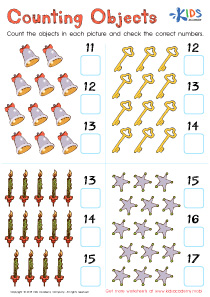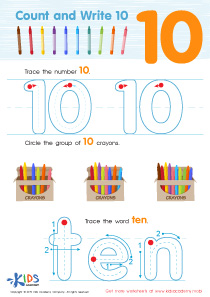Basic Math Skills Normal Comparing Numbers Worksheets for Ages 6-8
5 filtered results
-
From - To
Welcome to our resource page for "Basic Math Skills Normal Comparing Numbers Worksheets" designed for children ages 6-8! These engaging worksheets help young learners develop essential skills in comparing numbers, fostering a strong foundational understanding of mathematics. Kids will enjoy fun activities that challenge their abilities to identify greater than, less than, and equal to concepts. The vibrant and interactive formats are tailored to capture children's attention and encourage independent learning. Perfect for classroom use or at-home practice, these worksheets provide a great way to boost confidence in math while promoting critical thinking. Start exploring today for endless educational fun!
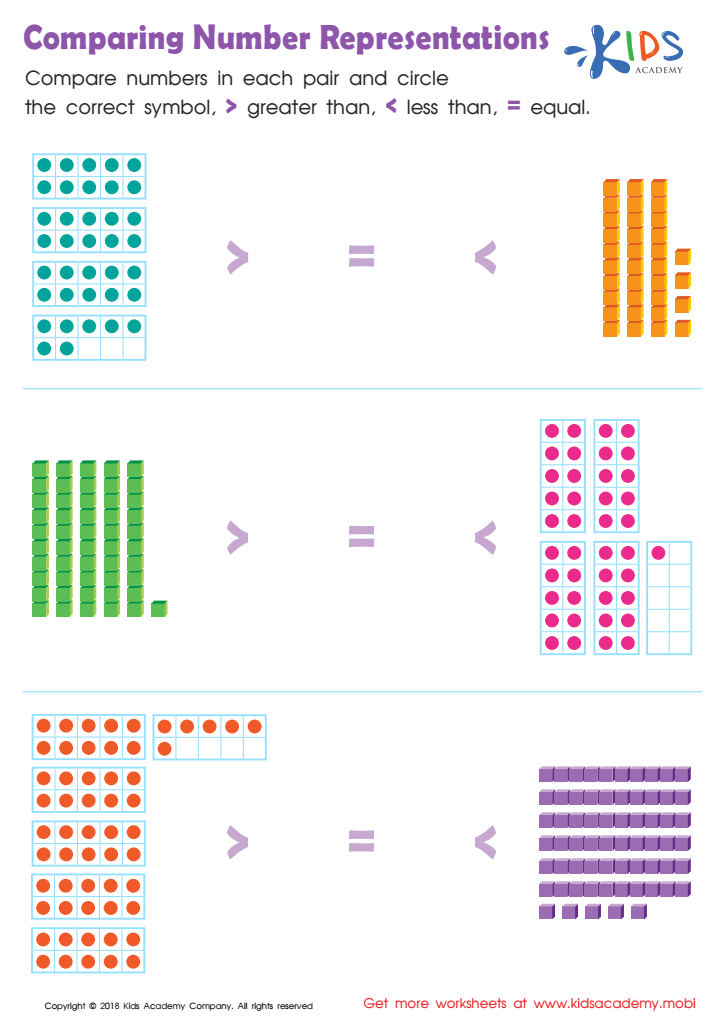

Comparing Number Representations Worksheet
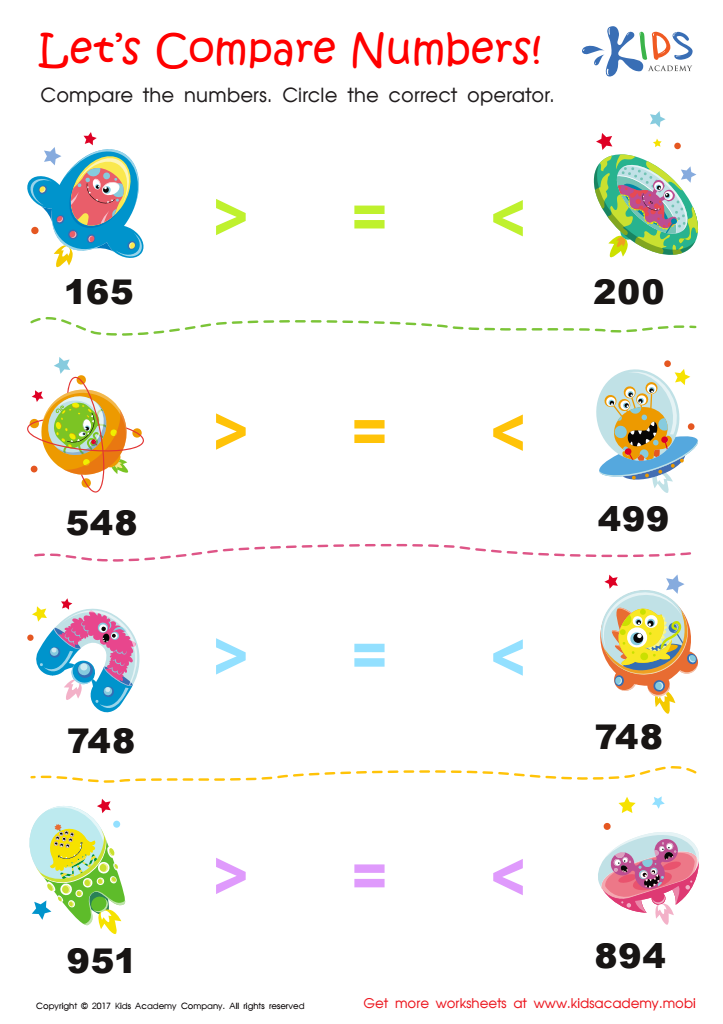

Comparing Numbers Worksheet for 2nd Grade
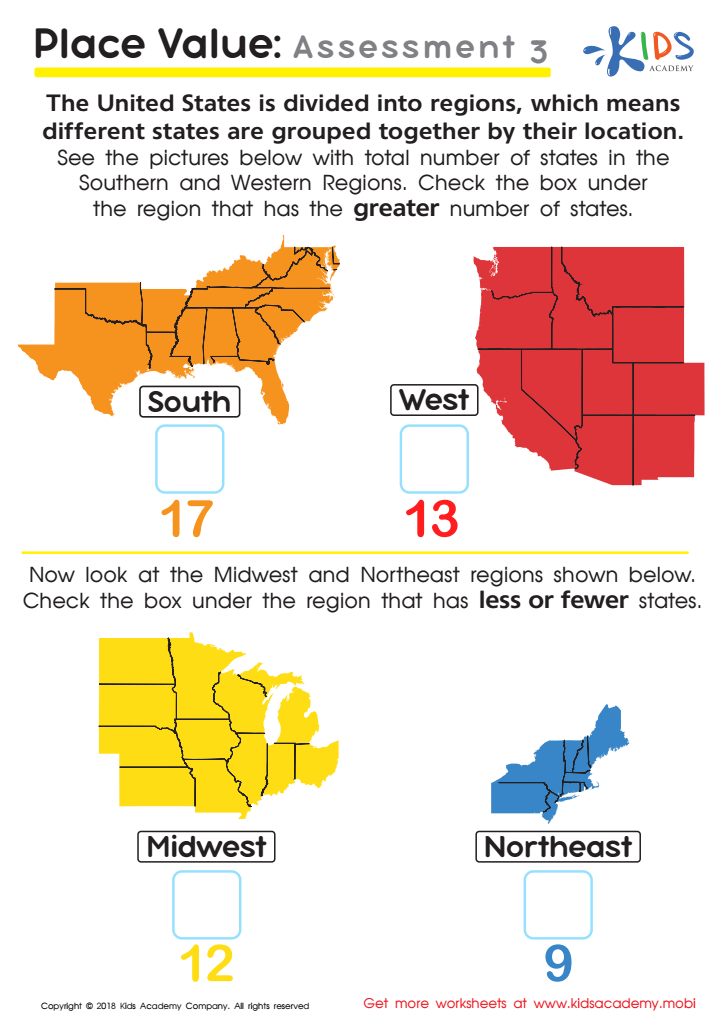

Place Value: Assessment 3 Worksheet
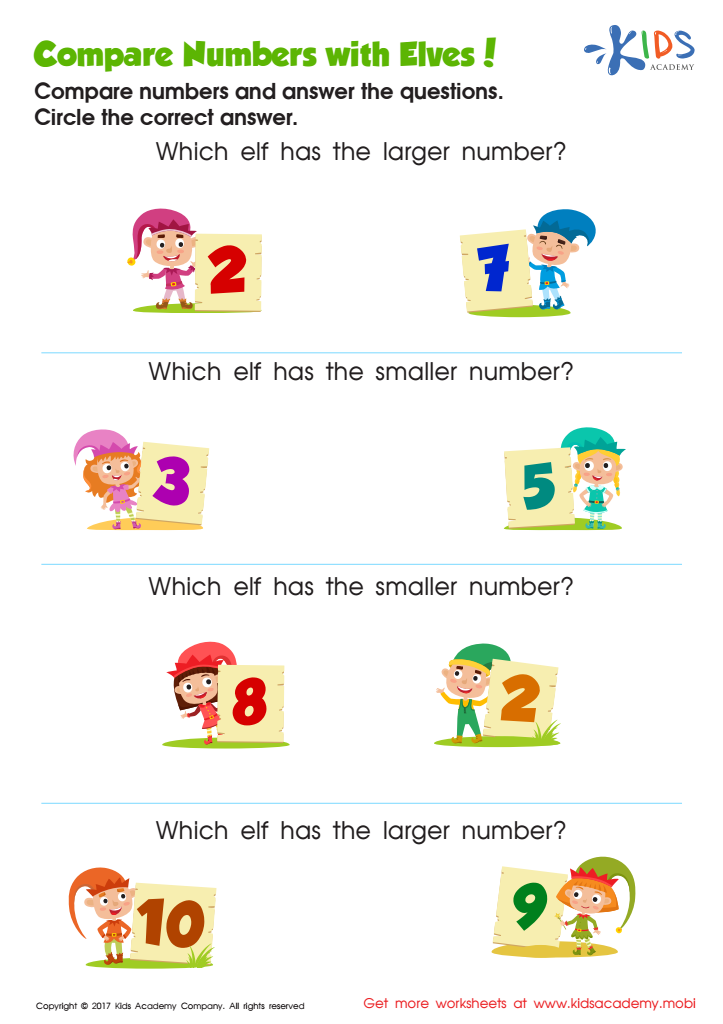

Comparing Numbers Worksheet for Kindergarten
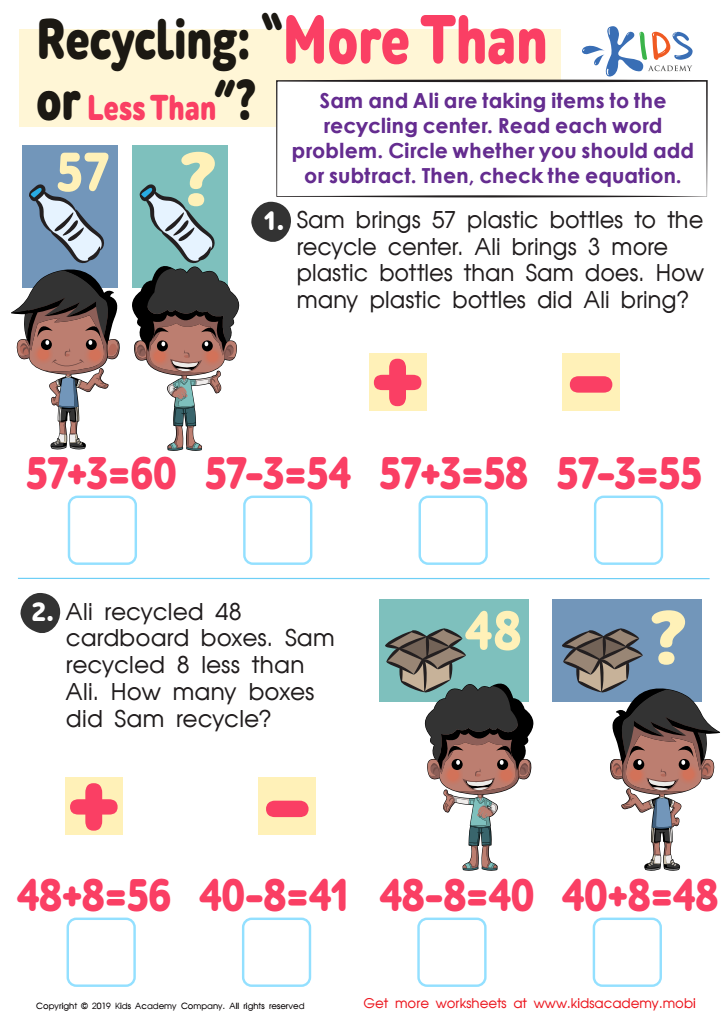

Recycling - More or Less Worksheet
Basic math skills, especially the ability to compare numbers, form a crucial foundation for developing mathematical understanding in children aged 6-8. At this age, children are transitioning from simple counting to more complex mathematical concepts, and proficiency in comparing numbers is a key milestone. This skill enhances their problem-solving abilities, support logical reasoning, and instills confidence in mathematical tasks.
When children learn to compare numbers, they begin to understand essential concepts such as greater than, less than, and equality. These skills not only apply to math but also translate to everyday situations, assisting kids in making informed decisions, e.g., understanding quantities in shopping scenarios or comparing ages among friends.
Furthermore, parents and teachers have a role in nurturing these skills through engaging, age-appropriate activities, such as number games and hands-on learning. Active involvement in children’s mathematical growth can foster a positive attitude towards math, making it a fun and less daunting subject.
Ultimately, strong basic math skills set the stage for future learning, helping students perform better in school and enjoy greater mathematical aptitude throughout their educational journey. Early investment in these skills leads to long-lasting benefits in children’s academic and personal lives.
 Assign to My Students
Assign to My Students










